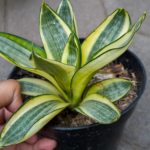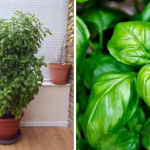Petunias are a garden favorite, known for their vibrant colors and abundant blooms. With the right care, these beautiful flowers can brighten up your garden all summer long. However, keeping petunias blooming continuously requires some know-how. Here are eight essential tips to ensure your petunias stay lush and full of blooms throughout the entire season.
1. Choose the Right Petunia Variety
Not all petunias are created equal when it comes to long-lasting blooms. Some varieties are specifically bred to flower more profusely and for a longer period. When selecting petunias for your garden, consider varieties like Wave, Supertunia, or Grandiflora, which are known for their vigorous growth and extended blooming period.
Why It Matters: These varieties are more resilient to summer heat and can handle the stress better, ensuring continuous flowering. Wave petunias, for example, are self-cleaning, meaning they don’t require deadheading to keep blooming, making them a low-maintenance option.
2. Plant in Well-Draining Soil
Petunias thrive in well-draining soil that allows their roots to spread out and access the nutrients they need. Poorly draining soil can lead to root rot and other diseases, which can hinder blooming.
Soil Preparation: Before planting, work compost or organic matter into your garden soil to improve its drainage and fertility. If planting in containers, use a high-quality potting mix that is light and well-draining. Adding perlite or sand to the mix can also help improve drainage.
3. Provide Plenty of Sunlight
Petunias are sun-loving plants and require at least 6 hours of direct sunlight daily to bloom optimally. Without enough light, petunias will produce fewer flowers and may become leggy.
Maximizing Sun Exposure: Plant your petunias in the sunniest spot in your garden, whether that’s in the ground or in containers on a sunny patio. If your garden has partial shade, choose a spot that receives morning sun and light afternoon shade to protect the blooms during the hottest part of the day.
4. Water Consistently but Avoid Overwatering
Continue reading on next page.


